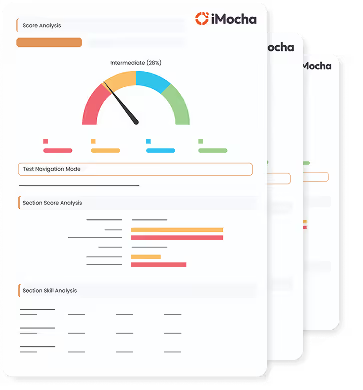


Choose easy, medium, or tricky questions from our skill libraries to assess candidates of different experience levels.
Choose easy, medium, or tricky questions from our skill libraries to assess candidates of different experience levels.

Choose easy, medium, or tricky questions from our skill libraries to assess candidates of different experience levels.

Choose easy, medium, or tricky questions from our skill libraries to assess candidates of different experience levels.
This a comprehensive PDF report, which you can instantly download and share with your hiring team or candidates for seamless collaboration.
Download Sample Report



Recruiters and hiring managers can use this test to assess individuals’ skill proficiency in areas like recognizing patterns, making sense of complex data sets, and drawing accurate conclusions for machine learning roles. It can even reduce hiring time by 45% and create dedicated upskilling programs.





%20(1).webp)
It is a data analysis technique that uses various ML algorithms to recognize patterns in different datasets. This data can be anything from images and text to sounds or similar definable qualities.
Why use iMocha’s test?
This skill test can easily find candidates and employees with this important skill to make sense of large amounts of data and find relationships that are hard to see otherwise. Additionally, our role-based access control feature restricts system access based on the roles of individual users within the recruiting team.

This skill test helps to screen employees & candidates who possess the below skill sets:







.webp)
.webp)
.webp)
.webp)

